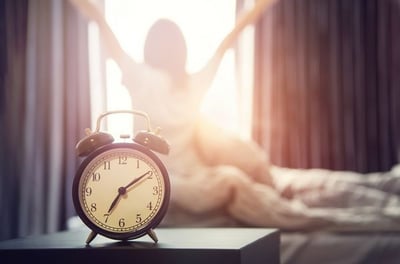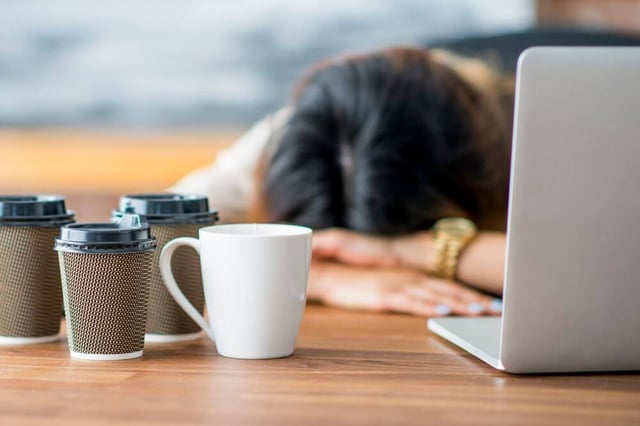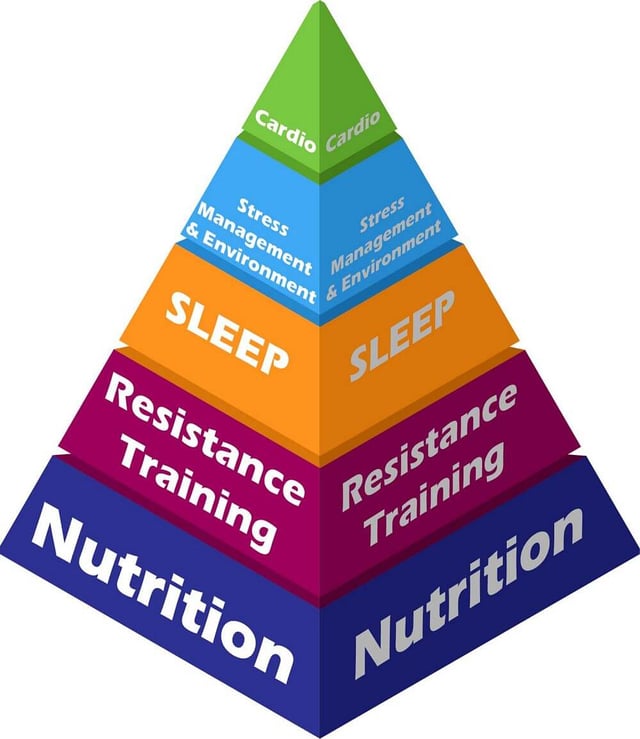MAKE A SPLASH
THIS SUMMER

Join Now For $0 Enrollment!
Learn MorePosted By: Sharon Millas /
We all understand to some degree that sleep is important, but overall people tend to underestimate just HOW important. Sleep is an essential pillar of Health & Wellness, and one we should all get to understand better. Depriving yourself of sufficient zzz’s does more to your body than just make you tired, so read on to learn more about how you benefit from sleeping well.
 Benefits of sleep
Benefits of sleepSleep is not wasted time. It is the essential period during which your body is able to recover and rebuild. It is a time of uninterrupted natural regeneration of the body, as well as being a critical for muscle and mind recovery. That’s right, your brain is an organ that needs recovery too. In fact, during the sleeping hours is when your brain is actually working overtime to clean out the junk from the day, and improve your memory function by archiving and tagging your experiences from the day. Your brain is essentially creating your memories during this time, and with sufficient sleep your mind is sharper and clearer the next day.
There are some much more recognizable benefits of being well-rested that you likely are already aware of, too. Sleep relaxes the body and relieves stress, which means you will feel less hungry and less emotional during the day. Plus, all that regeneration going on overnight is a key factor for bright eyes and clear skin.
 What happens when you skimp on sleep
What happens when you skimp on sleepWe all know what it feels like to be tired after not getting enough sleep, but you may be surprised to know just how damaging lack of sleep is for your overall health. Energy and overall performance declines with lack of sleep, but so does our ability to utilize self-control and make decisions. When sleep deprived, we are more likely to eat that extra cookie, or opt for pizza instead of a salad. We crave comfort and comfort foods because we have deprived ourselves of rest. That’s not even the half of it. Your body reacts to chronic lack of sleep as stress, which means that it begins to pump up your body’s cortisol levels. Cortisol reduces your sensitivity to insulin levels, resulting in extra pounds packing on, more difficulty losing weight and reduced ability to regulate blood sugar levels.
You may also have heard of something called a circadian clock, or your circadian rhythm. This is essentially your body’s 24 hour internal clock, your sleep/wake cycle, and why you feel sleepy at night and alert during the day. This clock is set by your habits and sleep patterns, and functions best when you get adequate sleep. Throwing it off can cause a chain reaction in your body. Say you sleep well Monday through Thursday, then the weekend comes around, you stay up late and get more or less sleep. You’ve disrupted your circadian clock and therefore your metabolic system as well. It takes 2 to 3 days for your system to properly recover. You are confusing your body and it’s constantly battling you to sync your metabolic system – this creates internal stress on the body. What’s the result of all this stress? Aging your body faster, internally AND externally, just from getting too little sleep.

It’s true, not everyone’s body requires the same amount of rest, but it’s also true that most people are not getting as much as they should. As a general rule, 8 hours is still the sweet spot for most people. This may change as you get older, but if you are sleeping well and taking care of your body, your body will let you know how much it needs.
As a trainer the first thing I look at after a discussion of goals is how many hours of sleep someone gets. This can throw off a weight loss/gain program. If you are serious about your goals, you have to take all aspects of your wellness into account. My health and wellness pyramid is this: bottom layer: nutrition, next layer: resistance training, next layer: rest, stress management & environment, top layer: cardio (that’s the peak – and smallest factor in weight loss).
A good place to start is setting a sleep environment - you put kids on sleep schedules, why not yourself? I encourage you to challenge yourself to a 7 day Sleep Challenge #CACSleepChallenge. Its easy to do just by following my guidelines below:
For more information, there is a wonderful book called The Telomere Effect. I love all the research behind sleep helping you live longer, healthier and feel younger! All in all, the take away should be that sleep doesn’t get the attention it deserves, but you have the opportunity to turn that around. I’ll leave you with this quote:
“I used to think time was a thief. But you give before you take. Time is a gift. Every minute. Every second.” –Alice Kingsleigh (Alice through the looking glass quote).
 Sharon Millas is a CAC Specialist trainer and Personal Training Manager of Wicker Park Athletic Club.
Sharon Millas is a CAC Specialist trainer and Personal Training Manager of Wicker Park Athletic Club.
| Chicago Athletic Clubs
| Chicago Athletic Clubs
| Chicago Athletic Clubs
| Chicago Athletic Clubs
| Chicago Athletic Clubs
© 2025 Chicago Athletic Clubs. All Rights Reserved. Privacy PolicyEmployee Login
https://www.chicagoathleticclubs.com/
https://www.chicagoathleticclubs.com/services/personal-training/
0
5000
true